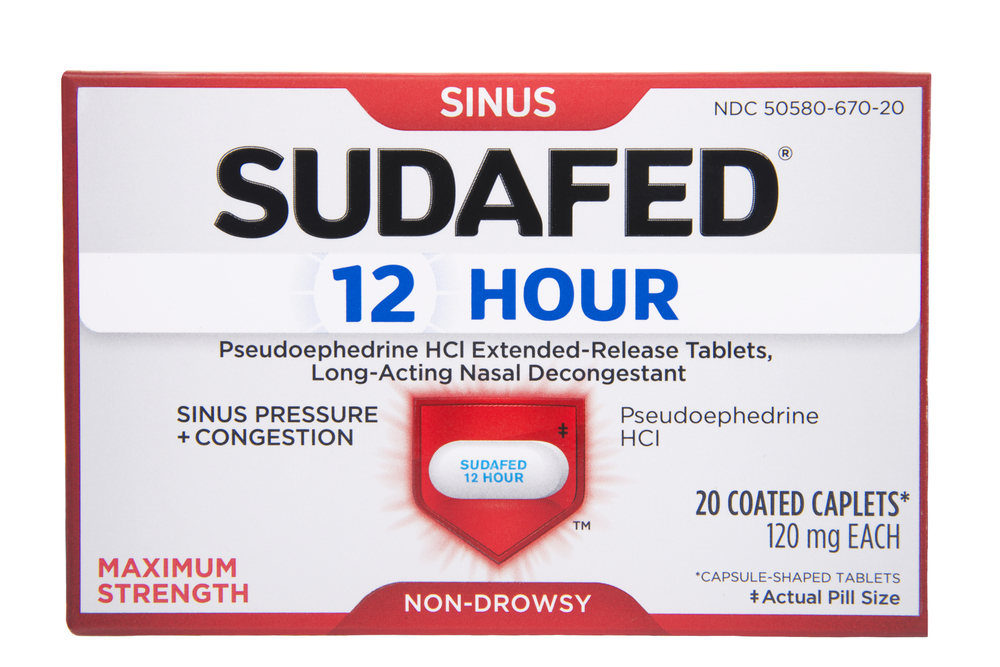89 year old patient has been battling with anxiety and insomnia over the previous few months. Also has a history of GERD, hypertension, allergies/congestion, constipation. Here’s the med list:
Ativan 0.25 mg twice daily as needed
diphenhydramine 25 mg daily at bedtime
omeprazole 20 mg daily
lisinopril 20 mg daily
metoprolol 25 mg twice daily
hydrochlorothiazide 25 mg daily
pseudoephedrine 60 mg every 4-6 hours as needed
clonidine 0.1 mg twice daily
docusate 100 mg twice daily
Senna 2 tablets twice daily
The first thing I would look at addressing is the current problem. With anxiety and insomnia, I’d be concerned that the(pseudoephedrine) Sudafed side effects are exacerbating conditions and causing potentially unnecessary use of other medications. Timing is very important as always. Are they taking the pseudoephedrine, how often, and when did they start taking it? I’d also look and see if any of the blood pressure medications have been increased with the timing of the pseudoephedrine.
We also have some issues with constipation. This is a perfect example of the potential of the prescribing cascade. Is Sudafed (pseudoephedrine) worsening hypertension causing the use of more blood pressure medications? Is it causing insomnia necessitating the use of the diphenhydramine? Is it causing or worsening anxiety and inciting the use of Ativan (lorazepam). Is the diphenhydramine causing the use of the laxatives (docusate and Senna)? Just a few thoughts on the importance of assessing as needed use. Please feel free to comment if something jumps out at you! – #allinthistogether
30 medication mistakes I see in my everyday practice as a clinical pharmacist is a 6 page PDF I will email to you as a free resource available to subscribers – Check it out for free!
Eric Christianson, PharmD, CGP, BCPS



The history given is far too brief and we find a situation where the prescriber could be treating side effects rather than addressing the root cause
You have started down the right path with your questions but they shouldn’t stop just yet. One should access the patients daily routine, such as; diet, hydration, wake-sleep-nap cycles, social activity, widowed or not, and other significant emotional events. Sometimes, we as pharmacists, just jump right in and make assumptions based on a medication profile presented to us without taking the proper steps to know and understand the patient. This could be a case of cognition deficits and a list of meds too long. How compliant is the patient? What were the last labs/electrolytes? Perhaps a low magnesium (omeprazole) and potassium (hctz) are producing some leg cramps thus the insomnia. Is the insomnia associated with falling asleep, staying asleep or early morning awakening? And we haven’t even started on the allergy issue!
Are they male? Prostate problems & PSE are a no-no, too. There are always more issues than what is on the surface! Etc etc etc.
Great point on BPH!
1) Possible dry mouth/dry eyes due to diphenhydramine, HCTZ and clonidine. If so, Biotene or moisturizing eye drops may be recommended.
2) Bone density scan may be needed, especially if pt is an Asian or Caucasian female with a slight build who has been on omeprazole for a long time. Ca/VitD supplementation may be needed depending on scan score. The constipative effect of Ca outweighs fall risk due to osteopenia/ osteoporosis … which brings us to …
3) Clonidine is constipative and should be the 1st antihypertensive d/c’d if you get rid of pseudoephedrine and BP falls somewhat significantly. Good riddance to diphenhydramine in this regard as well.
4) Fall risk also due to diphenhydramine, especially at night on bathroom visits and early in AM. Ask pt about falls, near falls, fear of falling and dizziness/orthostatic hypotension.